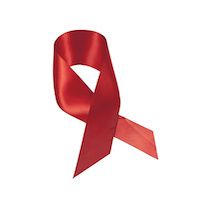Article
Homophobia Linked to Gay, Bisexual Men Bypassing HIV Prevention, Treatment
Author(s):
A Yale University study of 38 European countries' attitudes about homosexuality has uncovered homophobia was associated with gay and bisexual men not seeking HIV-prevention services, HIV testing, and disclosing their orientation to doctors.

A Yale University study of 38 European countries’ attitudes about homosexuality has uncovered homophobia was associated with gay and bisexual men not seeking HIV-prevention services, HIV testing, and disclosing their orientation to doctors.
The authors believed their study highlighted a dangerous trend: One where men who live in more homophobic countries were not only becoming less knowledgeable about HIV treatment, prevention, and resources, but also that this demographic seemingly had more opportunities for sexual activity through “hook-up” mobile applications and websites, a Yale University statement pointed out.
For their study published in the June 19 issue of AIDS, investigators used data from the European MSM Internet Survey (EMIS), a questionnaire that delved into gay and bisexual participants’ HIV-related knowledge, behaviors, and healthcare use.
The team also determined a country's level of homophobia by considering existing legislation that positively or negatively impacted Lesbian, Gay, Bisexual, and Trans (LGBT) communities. For example, countries were given a positive or low homophobia rating if they had enacted bills like same-sex marriage and employment nondiscrimination legislation, while statutes that barred assembly and protest were given negative scores. Moreover, they noted that countries like Russia and Ukraine received the highest homophobia scores while Sweden earned the lowest.
The investigators also analyzed beliefs on an individual level as they “included the proportion of respondents in each country who thought homosexuality could be justified; agreed that homosexual couples should be able to adopt children; and did not indicate not wanting to have homosexuals as neighbors.”
In doing so, researchers discovered that a staggering portion — 29.4% – of gay and bisexual men reported never being tested for HIV. Based on 157, 211 responses, experts also found men living in homophobic regions were less educated about HIV and were less likely to use condoms, which researchers believed was due in part to less health services being available.
Furthermore, the team discovered that men in homophobic countries had fewer partners and in turn were less likely to be HIV-positive. According to the press release, they believed that the stigma of being gay or bisexual kept them “closeted,” yet also uneducated and at an elevated risk of transmitting or being infected with HIV.
“Our results suggest that MSM in highly stigmatizing countries are particularly vulnerable to HIV infection (i.e. have little control over it) if and when they have opportunity to be exposed to it,” they wrote.
Concluding their study, the investigators claimed improving the health, access to resources, and civil rights of the LGBT community should be a concerted effort.
“Our findings suggest that rather than primarily being the result of personal failure, HIV risk is largely determined by national laws, policies, and attitudes toward homosexuality,” John Pachankis, Yale School of Public Health (YSPH) associate professor and the study’s lead author, said in a statement. “This study shows that gay and bisexual men in homophobic countries are denied the resources, including psychological resources like open self-expression, that are necessary to stay healthy.”





